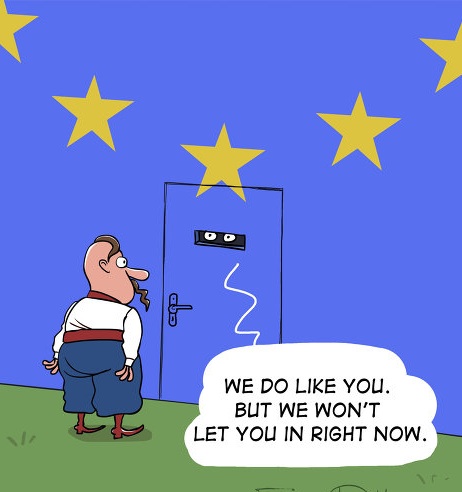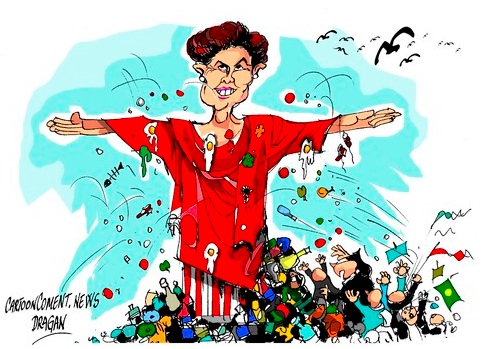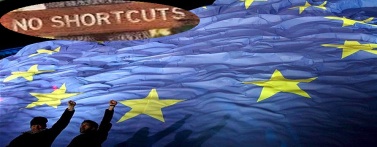Paul Roderick Gregory writes: Ukrainians elected a new parliament – the Verkhovna Rada — its 450-seat single-house legislative body. As a consequence of the Euromaidan revolution and Russia’s war on southeastern Ukraine, the parliamentary election was moved up from 2017 to October 2014.
Most signs point to a legitimate election, which will surely be confirmed by an official report of OSCE observers.
The early parliamentary election was necessary to give Ukraine’s representative democracy a chance to reflect Ukraine’s new pro-Western orientation, as emphasized by George Soros, and to respond to the challenges of occupied territory, Russian troops in the country, gas delivery disputes, and continued or expanded aggression from the Russian side. Despite defections from Viktor Yanukovich’s Party of the Regions after his flight from Ukraine, Ukraine President Petro Poroshenko had faced a strong bloc of deputies opposed to reform and against a strong response to Russia’s aggression.
Poroshenko got what he needed. His own bloc and that of Prime Minister Yatsenyuk received 44 percent of the votes. A surprisingly strong showing of the “Self Help” party headed by the pro-Western mayor of Lviv gives him a coalition of 57 percent of the votes – a governing majority in which all members share common policies towards the West and Russia.
Importantly, Poroshenko does not need the two “radical” parties on the ballot in his ruling coalition, which together garnered 12 percent of the vote. Both, however, will enter parliament, and will hold the ruling majority’s feet to the fire if they show weakness towards Russia. The Opposition Party, comprised of deputies from the southeastern provinces, gained only 8 percent of the vote, and former political heavyweight Yulia Tymoshenko’s party got only 6 percent, despite having a war heroine as its figurehead. Voters are telling Tymoshenko that she had her chance and failed.
For the first time in its history, the communist party failed to reach the 5 percent threshold.
Russian propaganda had been gearing up for a stronger showing of the two “radical” parties, which would have admitted one or both to the ruling coalition. Putin’s trolls were ready to scream that neo-Nazis and racial extremists control the Kiev government, but such charges will fall on deaf ears for those who know the true election outcome.
In fact, earlier public opinion polls showed the “Radical Party” headed by Oleh Liashko coming in second place. It is easy to understand his popularity. Liashko organized volunteer battalions and himself participated in the Anti-Terrorist operation in eastern Ukraine. For many Ukrainians, Liashko is the equivalent of the Minutemen of the American Revolution, but when it came time to vote, Ukrainians voted for mainstream parties. Perhaps they understood the propaganda coup for Russia of a Liashko in the ruling coalition.
Already, Western pundits are complaining that the election of a pro-Western parliament will endanger crisis resolution. A Time Magazine correspondent complains that as a result of leaving pro-Russian voters out of the election (their self-appointed leaders chose to boycott), the election will not heal the divide.
We are still awaiting Putin’s reaction. He must make the tough decision whether to recognize the election results – and admit the legitimacy of Ukraine as a sovereign state – or continue his ploy that the government of Ukraine is illegitimate.











